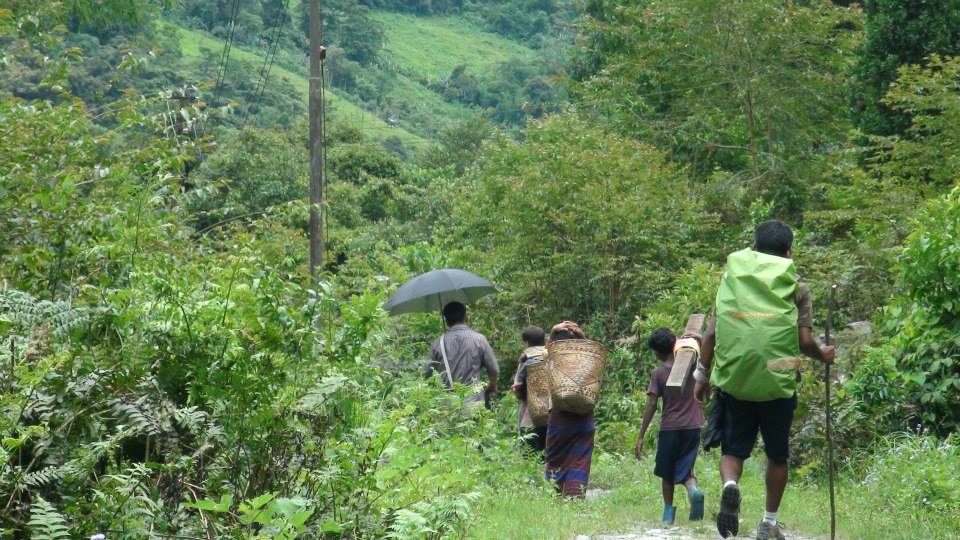

Alice Sharma speaks to Merwyn Coutinho, to understand The Batti Project, which is powering homes throughout the northeast
The idea of electricity is no longer a novelty, it is something that we live with every day and use to power our lives. But for villages like Gandhigram in Arunachal Pradesh, it was life with electricity that was a novelty. Deprived of this basic necessity, the villagers were living quite literally in the heart of darkness until Merwyn Coutinho and Rajiv Rathod showed up.
It all began in 2010 when Coutinho and Rathod went on an impromptu trek to Gandhigram and realised that the village which is deep in the forests of Eastern Himalayas had no electricity at all. After dark, the locals would often borrow tent lamps, torches from the two to finish their daily chores. The experience impacted them deeply and the following year they went back to the village for Christmas. “We thought of taking a Christmas gift for the people there. After much brainstorming, we came up with idea of solar bulbs since we saw them living in dark,” says 39-year-old Coutinho. “They were delighted to see the very basic source of light and that was the decisive moment for us and we decided to bring power to these remote areas.”
After doing some math, they found out that the cost of lighting up a single house is around Rs 5,000. What followed was a Facebook post inviting people to help. Their tireless efforts were yielded when they raised enough money to light up seven homes in another village called Dopawa. And thus, The Batti Project was born. The project, under the NGO Further and Beyond, founded by Coutinho and Rathod, has lit up 270 homes across Arunanchal Pradesh so far. They have an immediate demand for 100 more homes. The first house they lit belonged to a 90-year-old-woman, who had apparently never seen electricity in her life.
The tough task at hand right now is the transportation of the equipment, as there is no proper route available. Each time, The Batti team treks across villages, they come across more that need their support. They now have a Batti Kit which comprises a solar lighting system capable of lighting one home. Apart from providing them with the kit, Coutinho and his friends also educate people about the functioning of the kit which the villagers know nothing about. The kit has a solar panel, a battery, a charge controller, three LED bulbs and switches.

Transportation of the equipment means trekking through the mountain terrain since there are no direct motorable routes
The funding is mainly done through crowdsourcing. “We collect electronic waste from Bangalore and recycle it to generate funds. The cost involves a lot of logistics also, so it’s now raised to Rs 10,000,” Coutinho explains. The team also creates multiple events for funds. They started a cycling event called ‘Ride to Light’ in Arunachal Pradesh in January 2016 which is now being sponsored by the state government. “The batti project has given me a reason to go to other villages and do the needful. My car is my home and this is precisely my lifestyle now,” says Coutinho, who believes movements are the only constant in life. The amount of work that the project is doing is way beyond appreciation. The darkness is now not a forced phenomenon for the villages that remain neglected from the mainland. This darkness is now a choice over light.
To help The Batti Project, click here